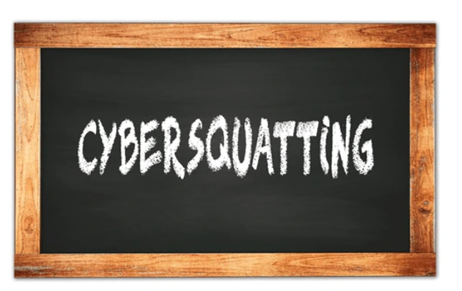Currently, semiconductors act as the foundation for advancements in the technological field such as smartphone…
Remakes, Reboots and Copyright
INTRODUCTION
Updates and fresh takes on old favourites are a modern staple in the entertainment world. They cleverly mix novelty with memories we cherish. There’s also the puzzle of how copyright rules may shape creativity. How can we respect the old while celebrating the new and imaginative versions of timeless classics? We unravel the delicate balance that must exist in copyright. It’s between preserving the old and inviting the new. It shows the complex bond between creative breakthroughs and legal limits.
COPYRIGHT OWNERSHIP IN REMAKES
In the context of remakes, the issue of copyright ownership presents a complex and multidimensional dilemma. Original creators frequently give studios or production companies significant rights when they adapt their works for the big screen. In order to determine which rights are licenced or transferred to the new right holders and which are kept by the inventors, a complicated negotiating process is required.
[Image Sources: Shutterstock]

This complex arena significantly affects movie makers and companies involved in doing remakes. To make sure a project is legally tight and has business potential, it’s key to know who owns which parts of the first work. The moral and legal debates surrounding who owns the copyright forms the groundwork for the remake process. This affects contracts, bargaining, and ultimately the final artistic vision that hits the screen.
COMPENSATION AND ROYALTIES: MANOEUVRING THE FINANCIAL REMAKE FRAMEWORK
Remakes’ financial implications go beyond aesthetic ones and touch on important topics like royalties and compensation. Whether they contribute by performing, directing, writing scripts, or other creative capacities, creators and contributors to remakes anticipate just reward for their labours.
Different industries have different compensation patterns, thus it’s important to understand royalty arrangements. In order to ensure that they benefit financially from the remake, creators frequently bargain for a portion of the sales revenue. These are difficult discussions that can entail detailed agreements, particularly when the subject is a remake of a well-known or extremely successful original work.
Contractual agreements and industry standards both have an impact on the legal responsibilities related to compensation. Compensation disputes have occasionally resulted in historic court cases that have shaped business practices and the legal system as a whole. Motivated by a desire for just recompense, creators frequently consult precedent-setting cases to guide their discussions and guarantee that the financial structure of remakes fairly recognises their contributions.
CASE STUDIES
Studying about the reboots and how they have been successful will open up various doors to study from an extensive legal framework in place. A great epitome of this is the legal war raised for Jon Favreau’s film “The jungle book” released in 2016. The remake highlighted important debates about copyright privileges and elements necessary to transform the original work. This is mainly inspired from two main works, one from Rudyard Kipling and second being an animated film by Disney. The conflict is inhaling with the new creative ideas and not to violate already placed boundaries of the existing rights. The issues between creators of the official “Jungle Book” and the production company highlights how complex legal disputes can become during remakes.
2019 Disney’s version of The Lion King created noise in several of its viewers. The remade video used nearly the same proceedings, creating obvious copies and raising questions about where to draw a line between respect and imitating. The deliberations will revolve around the new extra scenes where they have been reused and how they were designed, and the iconic ones that must be preserved. The courts’ job was to analyse if the content of the original work is copied, or if there is a new perspective given in it. The case studies focus on the many types of legal problems in remakes, that is why we need a proper study of how to relay and if it will create an impact in the market. There are creators that bring new versions and ideas to the field. This has helped regulation evolve in a way that balances creator’s freedom with the rights of the original owners.
EVOLUTION OF COPYRIGHT LAWS
Laws of copyright have developed in reply to the challenges raised through remakes; this displays how active safety for property is. Copyright laws came about in response to difficulties posed by re makes. This shows how dynamic the protection of assets is. The legal scenario for adapted creations has greatly been influenced by important court decisions and changes in law. The growth of fair use principles, often considered by courts in situations involving transformed works such as remakes, is a good example.
In 1994, the case of Campbell versus Acuff-Rose Music, Inc. centred on 2 Live Crew’s funny take on Roy Orbison’s “Oh, Pretty Woman.” The Supreme Court endorsed the importance of transformative use in fair use evaluations. This case set the stage for future decisions about re makes, deepening our understanding of how copyright laws adapt to the transformative aspect of art.
Now, the laws around remakes keep changing. As artists create and technology advances, copyright rules shift. Because of legislature moves, court decisions, and industry standards, artists have a big job to handle when they rework older material for today’s audiences.
INTERNATIONAL TREATIES AND AGREEMENTS
Revamping and remaking has to be done in accordance with global treaties since these provide a basis for copyright laws throughout the world. The Berne Convention was led to protect literary and artistic work by paving a way to proactively harmonise copyright laws among vastly diverse countries. In The Berne Convention, different countries agreed to respect the work of the creators from other country members by maintaining a minimum copyright for that.
Moreover, the Trade-Related Aspects of Intellectual Property Rights (TRIPS) agreement by the World Trade Organization (WTO) is highly important. Under TRIPS, there are specific laws for the protection of intellectual property on an international level. The countries who are the members will follow particular standards to give rights to the creators, and they will implement those standards in a specific manner.
This is important to recognize how these contracts impact when ideas are being shared across different borders. If a studio from Hollywood wants to remake some movie and collaborate with any European house it has to follow both countries copyright regulations. The art of teaching ensures that there is a fine understanding among students for how the copyright rules work?
In order to make remakes from different cultures, we need to maintain international treaties at utmost priority. The remaking criteria of a subject are developed in the manner that helps safeguard the exclusive rights of original developers and provides a platform for fostering creativity.
CONCLUSION
Certainly, the built-from-scratch area is an intricate one heavily interceded by outbursts of ingenuity, permits to ownership rights, and ideation. For creators, studios, and legal systems alike, maintaining creative integrity while honouring copyright interests is a never-ending dance. To promote innovation without undermining the rights of original inventors, the proper balance must be struck. In light of future developments in conventions, technology, and audience expectations, it is possible that copyright laws pertaining to remakes will change. A deep comprehension of copyright will be essential to promoting a creative ecosystem that depends on both innovation and repurposing as the entertainment sector explores new avenues for adaptation.
Author: Vaishnavi Ganeshkumar Wable, in case of any queries please contact/write back to us via email to chhavi@khuranaandkhurana.com or at IIPRD.



